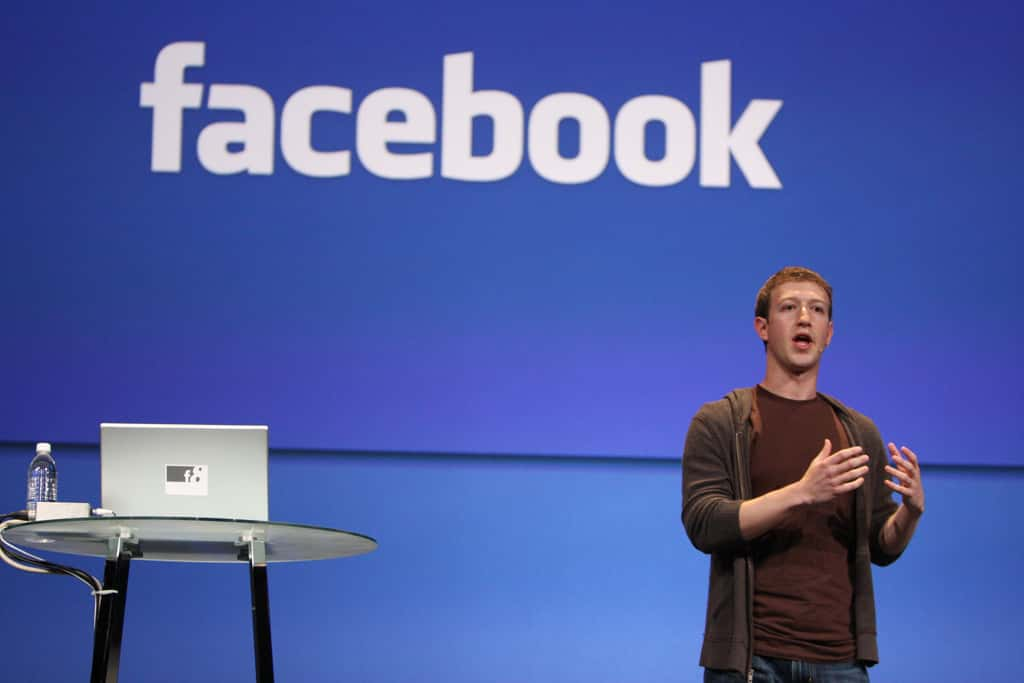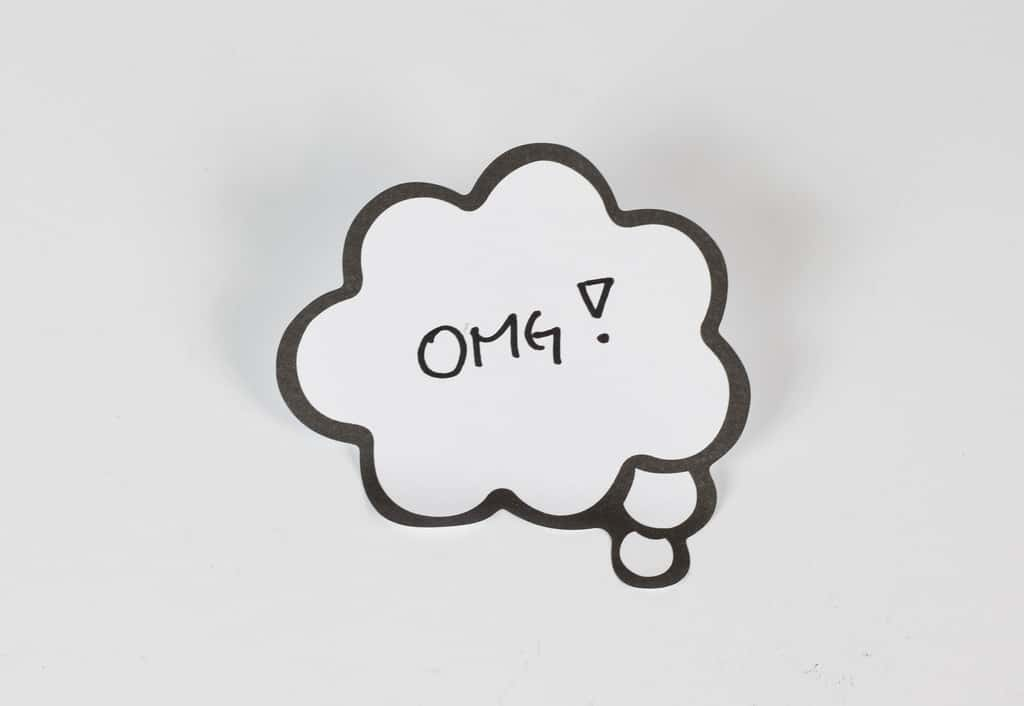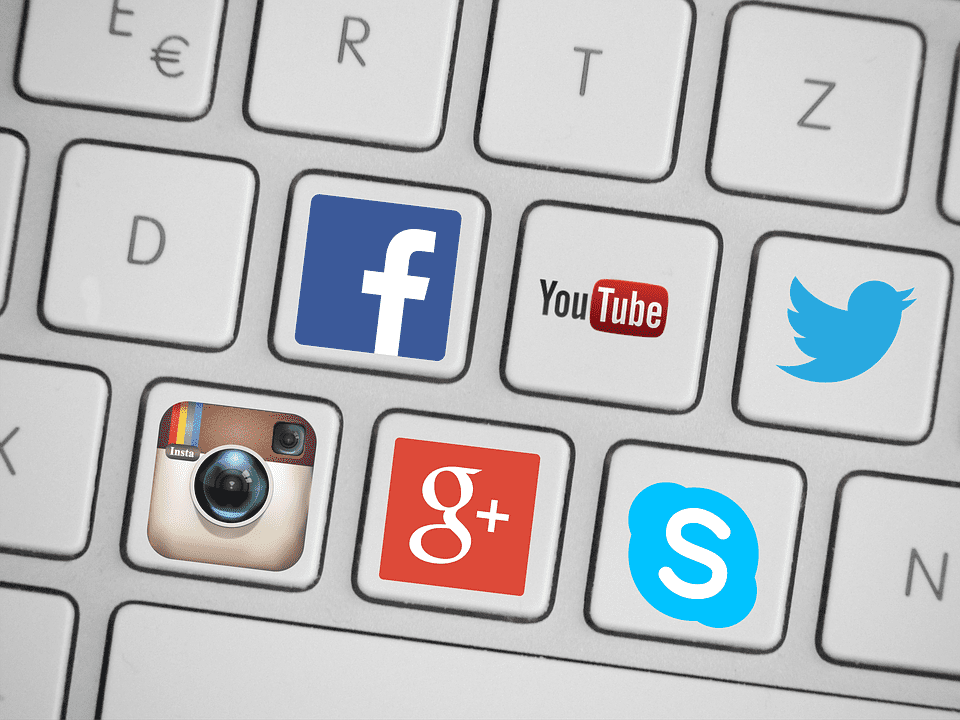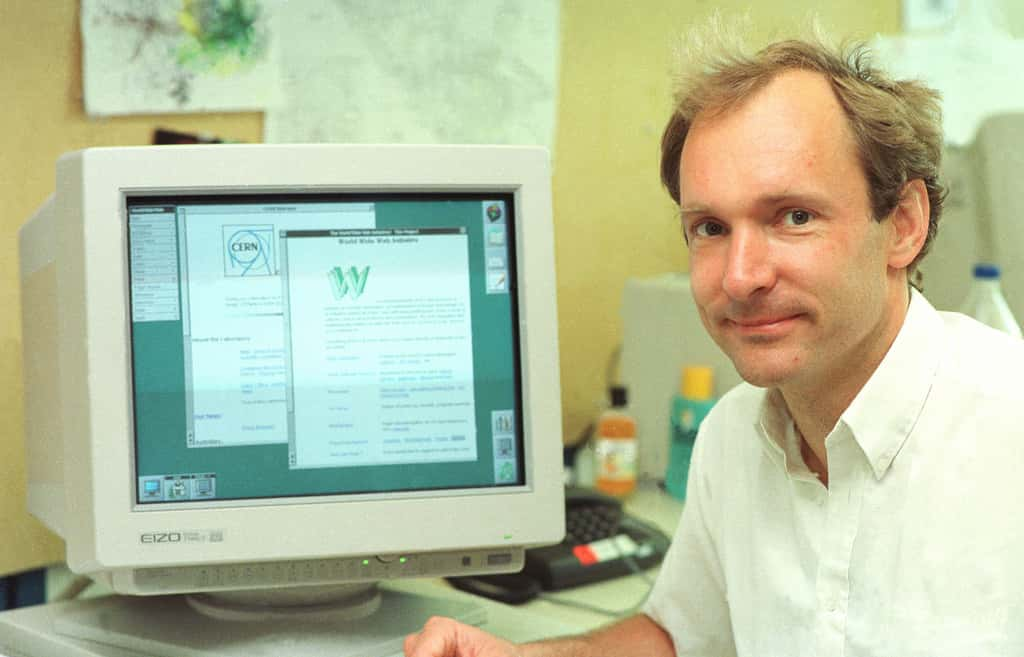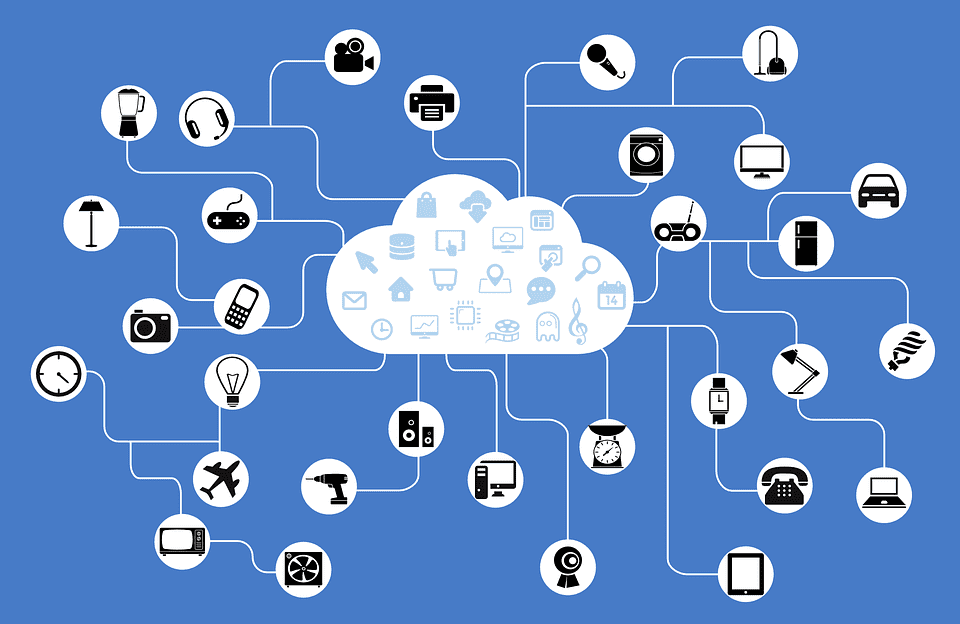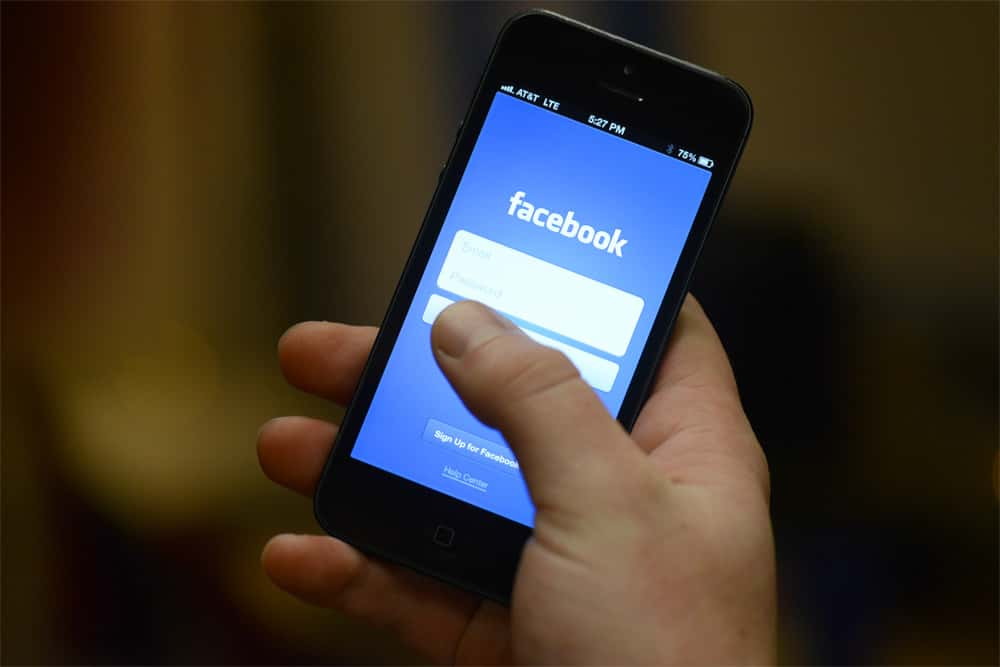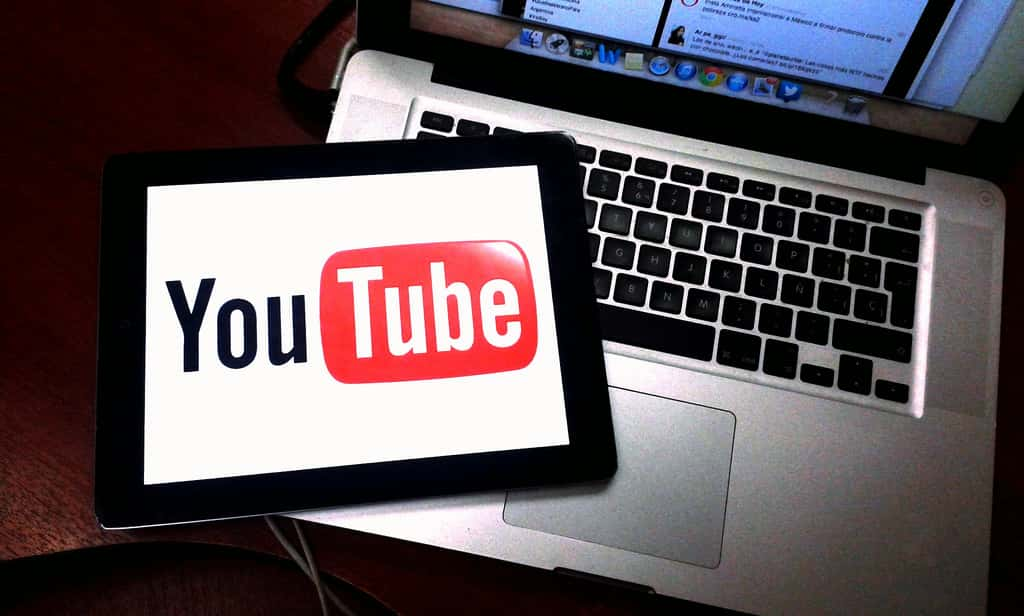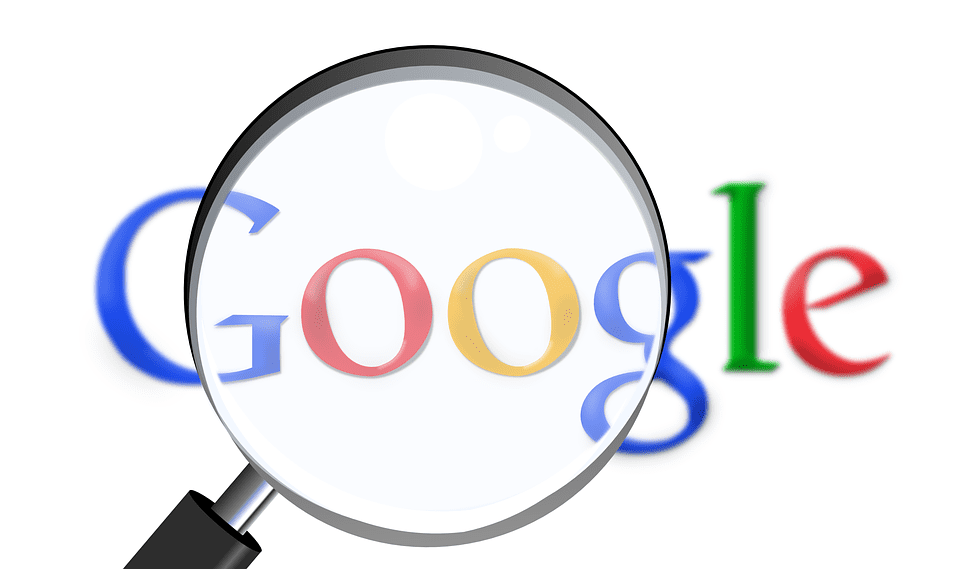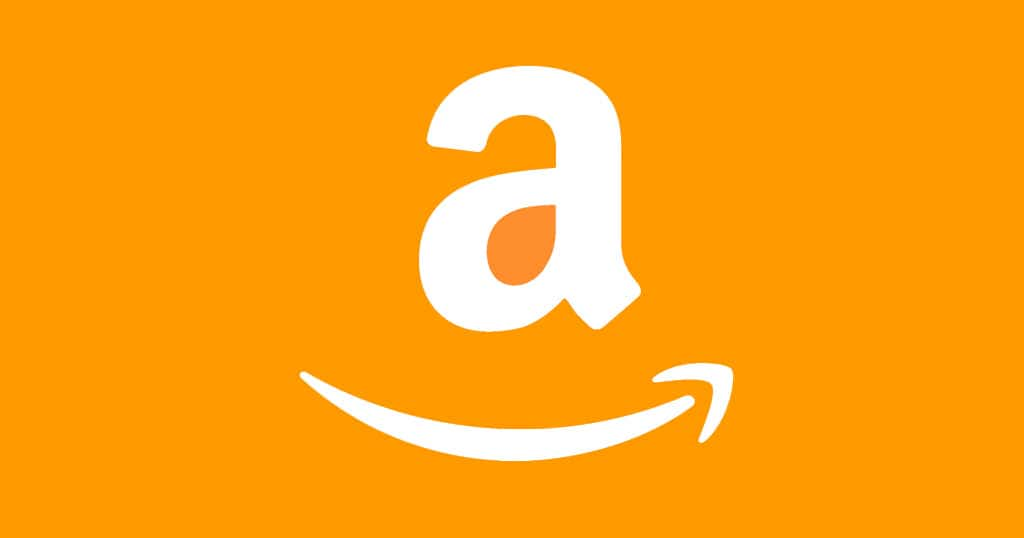The internet is all around us. This is, indeed, a good chunk of its power. Because the internet is everywhere (in our phones, streetlights, and microwaves), it helps to make our modern world go.
But all that ubiquity does have a bit of a drawback. You just assume you'll always have it. The internet, like a good sandwich, is easy to take for granted. And too often we take note of something like that only after it's gone. After all, it's only when we're served a cold, damp puddle of mushy bread and smelly pickles, that we begin to appreciate just how good a sandwich can be. Same goes for the internet. Because of our reliance on its magic powers, losing the internet for even 30 minutes can feel like the apocalypse.
Now, this isn't necessarily a terrible thing—but it is a little unfortunate. Just because we experience a lot of something, doesn't mean we shouldn't stop to give it some love. A really great meatball sub, for example, deserves to be savored every single time. And the internet, with its incredible capacity to literally change the world, is worthy of that same wonder and awe.
So without further ado, let's dive into some incredible facts about the internet.
43. Traffic
Approximately 3.2 billion people use the internet.
1.7 billion of those users are from Asian countries.
For reference, by the way, Facebook claims to have about 2 billion monthly active users. Which means that, for all intents and purposes, about 2/3rds of the internet is using Facebook on a consistent basis. All of which means you could make a serious case that Mark Zuckerberg is one of the most powerful people who has ever lived. After all, he controls the most massive communication network in human history.
42. Incognito
30,000 websites are hacked every day. While most of these hackers play simple pranks (like hiding a joke on the website or rearranging menu items) some have very malicious intentions... like stealing user data or credit card numbers.
So as if you needed another reminder: make sure your antivirus is up to date! I mean, let's be honest, a motivated, tech-savvy hacker will probably find a way around it anyway... but at the very least you'll be putting up a fight.
Then again, you can always use my fail-safe strategy... If you make your credit score bad enough, and refuse to keep any money whatsoever in your bank account, hackers will skip out on stealing your identity altogether. Heck, if you're lucky, they might feel so bad for you they'll find a way to add money to your account.
41. Wikihow?
The internet is already the deepest collection of human wisdom (and terrible memes... and ridiculous photos) the world has ever seen—and it's only getting bigger.
For example, Wikipedia (the closest thing to a modern Alexandrian library) publishes 600 edits every 60 seconds.
40. HiFi
If you happen to have bad internet service in your house, here's another reason to be mad at your provider: there’s actually high-speed internet service on the way up to Mount Everest.
This is so climbers can get constant updates on weather conditions... and, presumably, so proud climbers don't have to wait until they get back home to update their profile picture with a killer selfie.
39. Ghost In The Machine
The majority of internet traffic isn’t generated by humans.
It's mostly bots— like the ones run by Google and other search engines. There's also just a ton of malware. That’s why websites almost always have those “I’m not a robot” boxes to check off.
But what will we do once the robots figure that one out? Who knows? That might well be the first step in the inevitable rise of the machines.
38. It’s Not Yu, It’s Me
When Montenegro became independent from the former Yugoslavia, their internet domain went from .yu to .me.
Now that's the way to announce a break-up. We can only imagine they immediately changed their relationship status as well, and deleted all their old pictures off of Instagram.
(Just kidding, none of that existed yet. They probably just did whatever people used to do during break-ups, before the internet came around. Burned all their old telegrams, maybe?)
37. The What?
15% of American adults do not use the internet.
That's a pretty astonishing figure, and serves to illustrate an issue which some social scientists have begun to call the Digital Divide, or Digital Inequality. The theory being that, as modern economies become more and more entwined with online behavior, those of us who fail to adapt and learn new skills will be left behind. A parallel might be someone who was illiterate in the early 20th-century, and how they would struggle to find work.
As the speed of technological change continues to pick up, that social adaption will become all the more important, and more fascinating. How will our culture adapt, when people still in their 20s are already behind the times? For all we know, we'll still be using email while our children (and our children's children) are sending each other holographic sexts and 3D memes.
36. Clueless
Here's another indication of the digital divide: according to one study, 1 in 10 Americans think that HTML (the programming language used to build web pages) is a sexually transmitted disease.
Clearly those people have heard terms like "going viral" and gotten a very wrong impression.
35. Necessity breeds innovation
The first webcam was created at the University of Cambridge in 1991. What was the motivation for that historic feat? Well, members of a campus computer lab wanted to easily check the status of a coffee pot.
The camera was focused on the pot, so anyone on the network could check to see if the pot had coffee before they were forced to stand-up and look like a bunch of cavemen. Yep. This monumental moment in the history of the internet was the work of some computer programmers too lazy to get out of their chairs. Truly, we are living in the future.
The webcam, by the way, was retired in 2001 after gaining some internet notoriety. So we have to assume those poor programmers are back to living like the rest of us.

History's most fascinating stories and darkest secrets, delivered to your inbox daily.
34. Under A bridge
If the rudeness and crudeness in internet comment-sections have left you feeling a little hopeless about the future of humanity, here's some good news: it turns out the "Internet Trolls", who often make life online so profoundly upsetting, are not actually a large portion of the population.
Psychologists examined Internet trolls and found that they are "narcissistic, psychopathic, and sadistic", and that while they can be extremely vocal, the traits themselves are only as common as they have always been, throughout human history.
In other words: although trolls are easy to focus on (because of their volume and their eye-catching crappiness) they don't actually make up a overly-large portion of internet users. So humanity hasn't gotten worse by-and-large... it's just that the worst of us are getting louder. Which is.... good, I guess?
33. Last Place
The Philippines has the slowest Internet speed in the entire Southeast Asian region with an average download speed of 3.54 Mbps. That doesn’t even sound that slow... until you realize that South Korea is downloading at 26 Mbps—nearly four times the world average of 7 Mbps.
Experts predict that within a few years, a country's average internet speed might be an accurate predictor of their future GDP. Turns out, the internet isn't just good for gaming and watching live streams... it's a money-maker too.
32. Inside Job
For years, Patrick Rock was a Policy Advisor to the British Prime Minister, David Cameron. But for many, Rock was more famous for one thing: his role in advocating for "porn filter" which would censor online content in Britain. The initiative was wildly unpopular... and it only got worse after Rock resigned his post in 2014 under suspicious circumstances.
What caused his resignation? Well, it likely had something to do with his later arrest for child porn offenses. That's right: the man who was pushing to regulate online pornography in Britain was himself a sex-criminal.
It's always the most self-righteous who end up having something to hide.
31. Mobility
China has more people using the internet through mobile devices than on PCs.
And that trends hold true for most of the world. As of the end of 2018, about 52% of global internet traffic is coming from mobile users.
Makes sense, right? Long gone are the days of flip-phones and 40-second waits to load a page. Mobile devices are now just small, touchscreen laptops. They've got more computing power than the machines on the Apollo 11 rocket.
30. You’ve Got Mail
Approximately 204 million emails are sent every minute and over 70% of them are spam. This must mean that some spam is working. Please do your part and tell your grandparents that they’re not getting emails from real Nigerian princes.
29. Busy!
It is estimated that approximately 200 billion emails and 3 billion Google searches would have to wait if the internet were to go down for a day.
But that's not the worst of it: imagine what we would do for entertainment. We'd be talking about the most shockingly boring day in human history. I can't do nothing for more than 20 seconds!
28. Despacito
“Gangnam Style” by PSY was the most viewed videos of all time with more than 2,840,000,000 views. It has recently been beaten by the song Despacito by Luis Fonsi which boasts an astounding 3.48 billion views and counting. That’s the equivalent of almost half of the world’s population having watched that video.
27. Virgin Territory
The first tweet was done on 21st March, 2006 by Jack Dorsey. The first YouTube video to be uploaded was “Meet At Zoo” at 8:27 p.m. on Saturday, April 23, 2005, by Jawed Karim. Thanks for leading the charge, fellas!
26. Wipeout
You’ve heard the term ‘surfing’ on the internet, right? Well, it originated in 1992, courtesy of a New York librarian whose name was Jean Armour Polly. Even now, the term is used quite often, but other words such as ‘browsing’ have also become a popular addition.
 Pixabay
Pixabay
25. Dinosaur
The world’s first website is still alive and kicking. It does not come close to being glamorous because all that’s present is text and hyperlinks but the fact that it is still running is pretty cool.
24. How Old?
The internet is now 10,000+ days old. If you want to keep an exact track of the counter, you can always visit howoldistheinter.net and appreciate that for that long you have access to free information anywhere and everywhere.
23. Internet Nobility
Tim Berners-Lee is the man generally credited as having invented the Internet. (Although the story is much more complicated)
He was working for the European Organization for Nuclear Research (those are the people responsible for the Large Hadron Collider, by the way) when he pioneered the technology that led to the internet, in about 1989.
P.S. We should note that it's technically Sir Tim Berners-Lee. That's right: he was knighted by Her Majesty, Queen Elizabeth II of England.
zimbio
22. Leaks
It is expected that around 40 billion gadgets are going to be connected to the internet by 2020.
It's a concept that experts refer to as The Internet of Things, or IOT.
21. Swipe Right!
Online dating originally had a negative stigma associated with it. Clearly that has changed because according to the latest statistics, online dating services generate approximately $1 billion dollars every year and it's estimated that about 19% of the world’s couples met because of the internet.
20. Deep Down
The pages that you search for are just a minuscule percentage of the internet and is often referred to as the ‘Surface Web’. The remaining part is called ‘Deep Web’ and it is much larger than the Surface Web. You cannot even use a regular browser like Google Chrome or Firefox to access the deep web and will need something that people know as ‘Tor’ to access the ‘Deep Web’. Be careful though, as there is a lot of strange stuff lingering there.
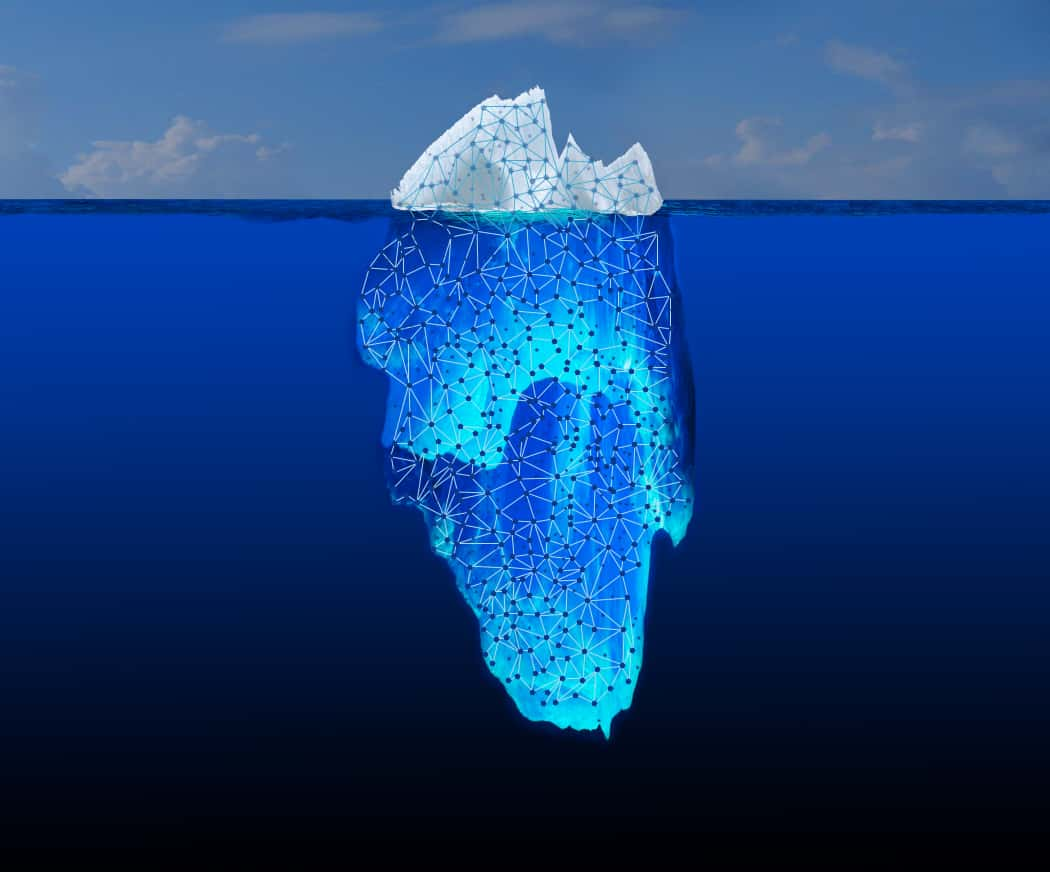 NASA/JPL-Caltech
NASA/JPL-Caltech
19. Finnish Line
In 2010, Finland became the first country to make access to the internet a legal right.
What do you think? It's possible that people from the future will look back on today and wonder how the internet was ever not a basic human right.
18. Popular
Nearly half of all Internet users have Facebook accounts.
That’s over a billion profile pictures, and even more status updates! As we mentioned before, that also technically makes it the largest communication network in human history.
bubble branding
17. YouTube
There are 72 hours of video content uploaded to YouTube every minute. That's 3 days worth of cat videos and "How to unscrew a lid" tutorials added to the world every 60 seconds. Imagine all the storage required to house all of that data. Imagine the poor Youtube content-team, tasked with somehow monitoring that mess! It'd be like trying to filter all the water coming over Niagara Falls using your teeth.
16. Growth
It took the Internet a mere three years to reach 50 million users. The television took 13 years, while the radio managed to achieve the same feat in 18 years.
That's a pretty clear indication of just how much the pace of technological change has picked up. We can only imagine what happens next.
15. Connected
China leads the world in terms of the total number of Internet users with over 630 million people. Norway, however, has the highest percentage of its population using the Internet at 95.05 percent.
14. Lies
With satellite networks, there is no part of the world that is not connected to the internet, though governments of some regions have imposed strict regulations over its use. Maybe do less of that, governments.
13. Key Holders
A group of 14 people (equally divided into two groups) meet four times a year as part of the "Key Ceremony." These 14 people belong to the Internet Corporation for Assigned Names and Numbers (ICANN) and are the ones who actually control the way we navigate the Internet. The organization is responsible for assigning numerical ID's to websites and computers, and then translating the ID's into the normal web addresses that people type into their browsers. Sounds like a conspiracy (it’s not though).
12. LOG
The technology behind the Internet was pioneered in the 1960’s at MIT. The first message ever to be transmitted was "LOG". The user had attempted to type LOGIN, but the network crashed after the "enormous" load of data that the letter G used.
11. MPFree
The MP3 standard was invented in 1991... but it didn't take off right away. It took until 1998 for the first music file-sharing service, Napster, to go live and take the file format to the mainstream.
Napster changed the way that most people saw the Internet by showing the masses that this new network could provide the world with unprecedented access to just about anything. Of course, this created a huge
10. Tapped In
With all the professional developers, analysts, and business managers tasked with competing for your attention, is it any wonder that for some people, internet usage begins to impact their quality of life in the same way that a heroin habit might? After all, our brains just don't evolve at the speed the internet does. We're still programmed to fulfill some basic, basic instincts... and websites, applications, games, and businesses are more than capable of using those instincts to keep us sitting at our screens.
That's why China (and some other countries) have begun setting up addiction camps for the sole purpose of treating those addicted to browsing the internet. As much as it sounds like something funny and ridiculous, it seems the condition is only becoming more common.
But then again, just become something is a serious issue, doesn't mean it doesn't warrant at least a little bit of poking fun. For example, can you imagine trying to explain to someone from a few hundred years ago that we're now treating people for an addiction to cat videos and League of Legends? They'd think you were insane.
 Picture By http://rebcenter-moscow.ru/ (Own work) CC BY-SA 4.0 via Wikimedia Commons
Picture By http://rebcenter-moscow.ru/ (Own work) CC BY-SA 4.0 via Wikimedia Commons
9. I'l take it
The most expensive keyword for Google AdWords is "insurance." Not exactly sexy, is it? Although I suppose it's practical.
8. Too Big To Fail
Google estimates that the Internet today contains about 5 million terabytes of data (1TB = 1,000GB)... and claims it has only indexed a paltry 0.04% of it all!
Which is an interesting little reminder that the things you retrieve in a Google Search (or a Bing search, if you're insane) don't represent the actual internet itself. Google is just one company, doing its best to archive an almost limitless mountain of data that is constantly expanding.
It's this reality that fuels the so-called Dark Web... which is not necessarily as cryptic and hard-to-reach as the media sometimes make it sounds. All it takes for a site to be part of that world is to unindexed by Google... and maybe protected by some encrypted code.
7. Foresight
According to legend, Amazon became the number one shopping site for a surprising reason: in the days before the invention of the search giant Google, Yahoo would list the sites in their directory alphabetically!
Which meant good ol' Jeff Bezos and company showed up right near the top, despite only recently starting out. If the story is to believed, that strategy helped them to grab a lot of traffic quickly, and is part of the reason they grew so rapidly.
6. Virgin Territory Part II
The very first spam email was sent in 1978, when DEC released a new computer and operating system, and an innovative DEC marketeer decided to send a mass email to 600 users and administrators of the ARPANET (the precursor of the Internet). The poor sap who had typed it all in didn’t quite understand the system, and ended up typing the addresses first into the SUBJECT:, which then overflowed into the TO: field, the CC: field, and finally the email body too!
The reaction of the recipients was much the same fury as users today. It wasn’t until later though that the term “spam” would be born.
5. Python Influenced
So where does the word spam come from?
Some think it back to the Multi-User Dungeons (MUD) of the 1980’s – primitive multiplayer adventure games where players explored and performed actions using text only. One new user felt the MUD community and experience was particularly boring, and programmed a keyboard macro to type the words SPAM SPAM SPAM SPAM SPAM repeatedly every few seconds, presumably imitating the famous Monty Python sketch about spam-loving Vikings.
4. Convenient
It's easy to forget, but the Internet is actually supported by a lot of physical infrastructure, much like our electricity grid. And much of that infrastructure is more vulnerable than we'd like to believe...
Internet terrorism is a very real threat. In February 2008, for example, 5 deep-sea cables that provided Internet connectivity to the Middle East were cut by unknown parties. What were they after? We can't know. But, curiously, US-occupied Iraq and Israel were unaffected.
3. Liberate The Internet
The most common form of “cyber terrorism” is a DDOS, or Distributed Denial of Service attack, whereby hundreds if not thousands of systems around the world simultaneously and repeatedly connect to a website or network in order to tie up the server resources, often sending it crashing offline.
The hacking group Anonymous released a tool this year that users could download and set on autopilot to receive attack commands from a remote command source. Similar DDOS attacks are often performed by the use of malware installed on users computers without their knowledge.
2. Marketing
The first ever banner ad invaded the Internet in 1994. The ad was part of AT&Ts “you will” campaign, and was placed on the HotWired homepage.
 PxHere
PxHere
1. Guilty
At any second of the day, worldwide, almost as much as 30,000,000 unique visitors are viewing porn. So every time you view pornography, it's likely that 30,000,000 other people are also viewing pornography.


